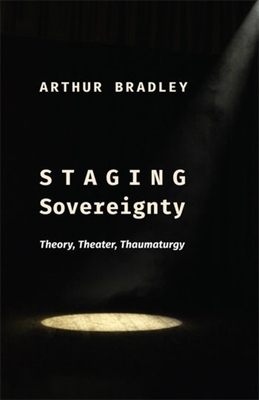
description
seen as sovereign. In other words, a sovereign must appear--philosophically, politically, and aesthetically--on the stage of power, both to themselves and to others, in order to assume authority. In this sense, sovereignty is a theatrical phenomenon from the very beginning. This book explores the relationship between theater and sovereignty in modern political theory, philosophy, and performance. Arthur Bradley considers the theatricality of power--its forms, dramas, and iconography--and examines sovereignty's modes of appearance: thrones, insignia, regalia, ritual, ceremony, spectacle, marvels, fictions, and phantasmagoria. He weaves together political theory and literature, reading figures such as Plato, Aristotle, Montaigne, Leibniz, Kant, Hegel, Schmitt, Benjamin, Derrida, and Agamben alongside writers including Shakespeare, Cervantes, Schiller, Melville, Valéry, Kafka, Ionesco, and Genet. Formally inventive and deeply interdisciplinary, Staging Sovereignty offers a surprising and original narrative of political modernity from early modern political theology to the age of neoliberal capitalism.
member goods
No member items were found under this heading.
Return Policy
All sales are final
Shipping
No special shipping considerations available.
Shipping fees determined at checkout.







